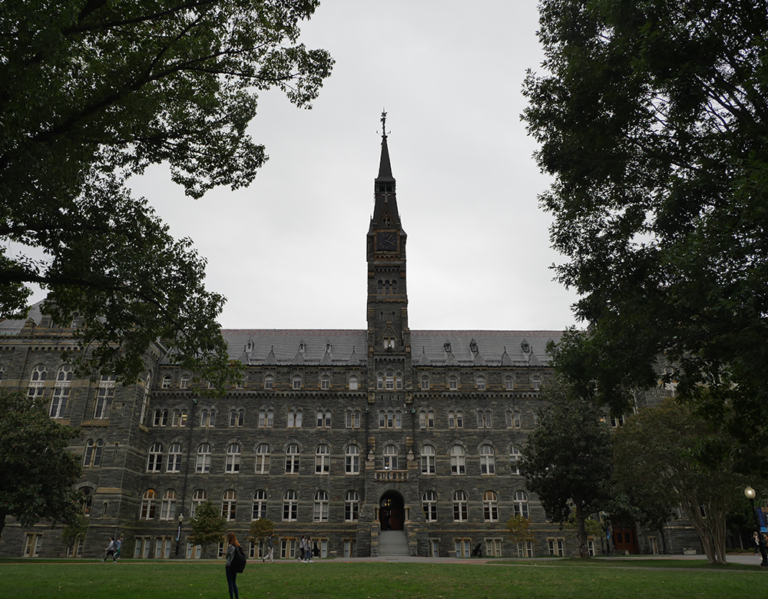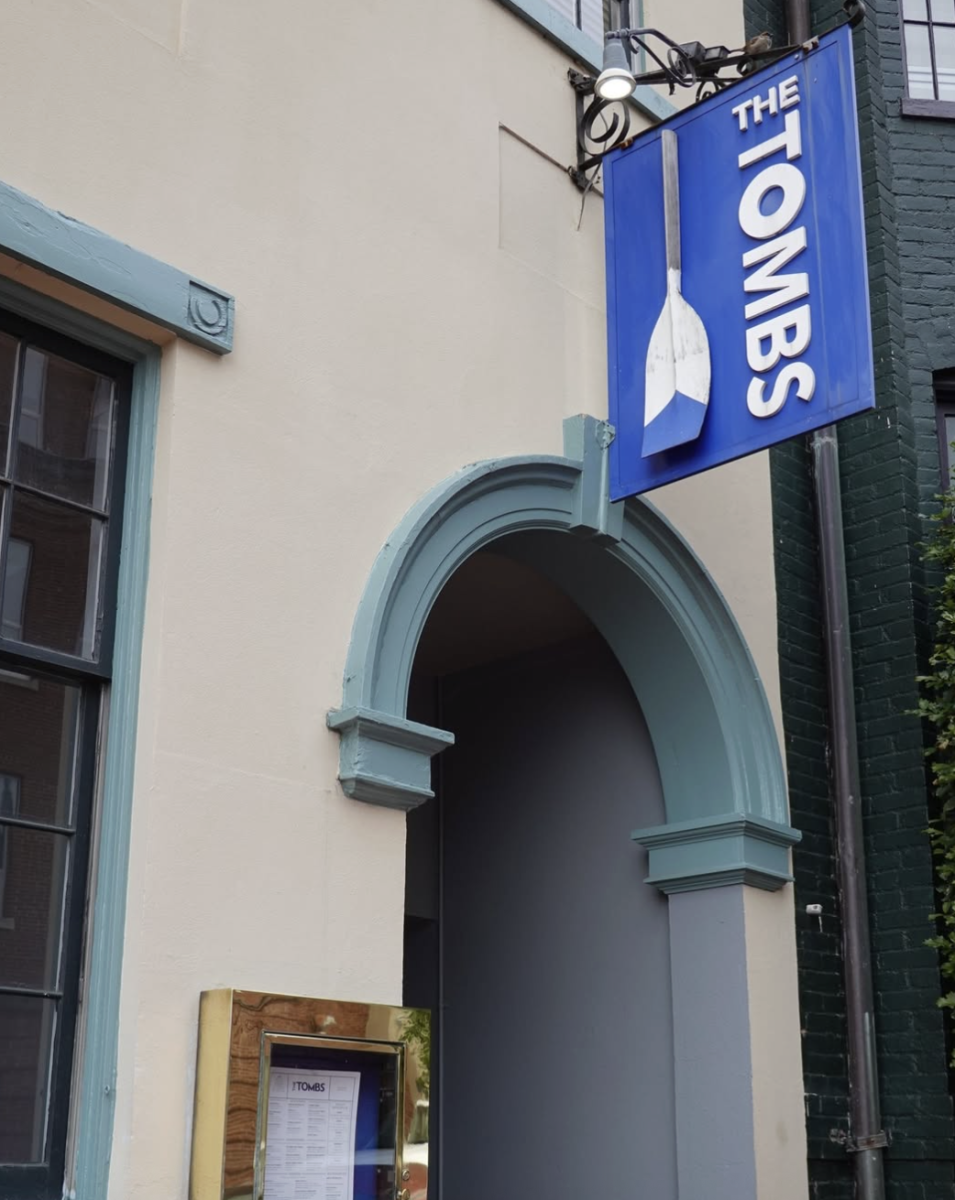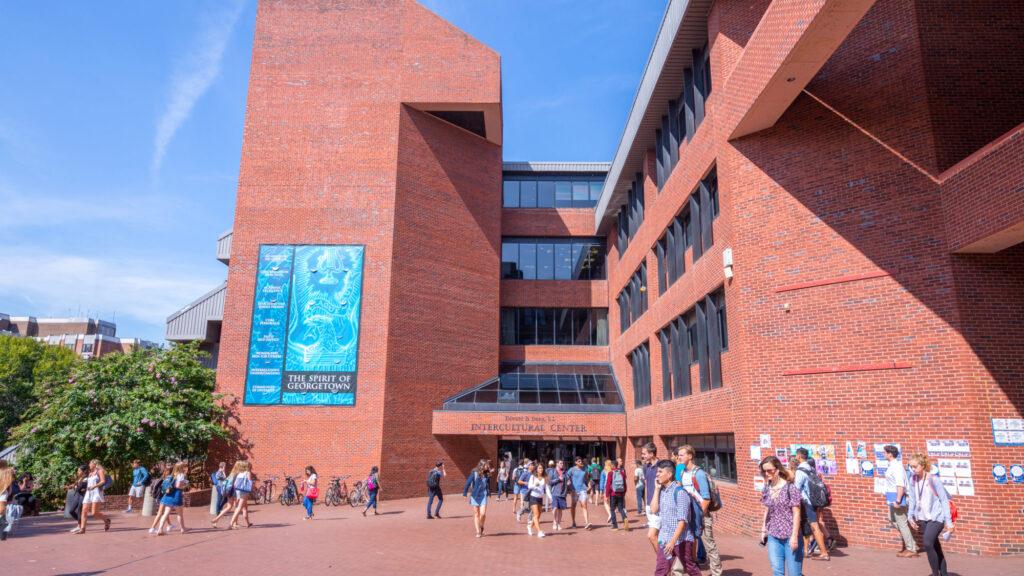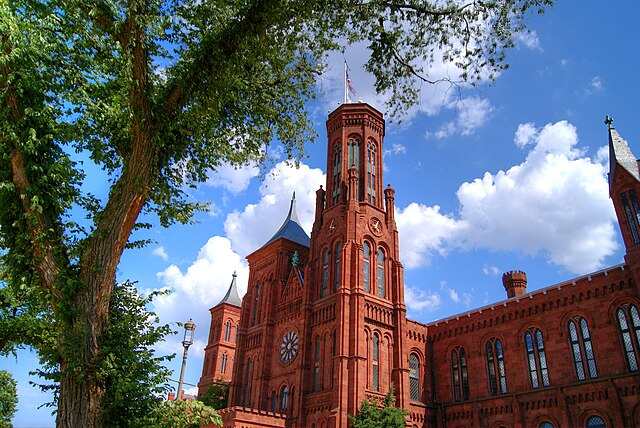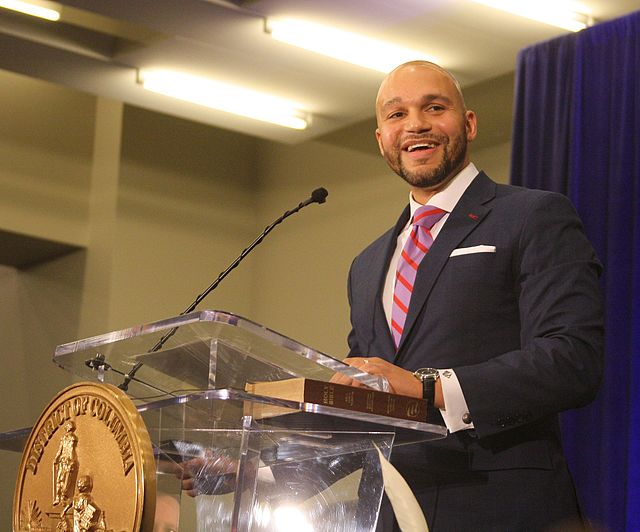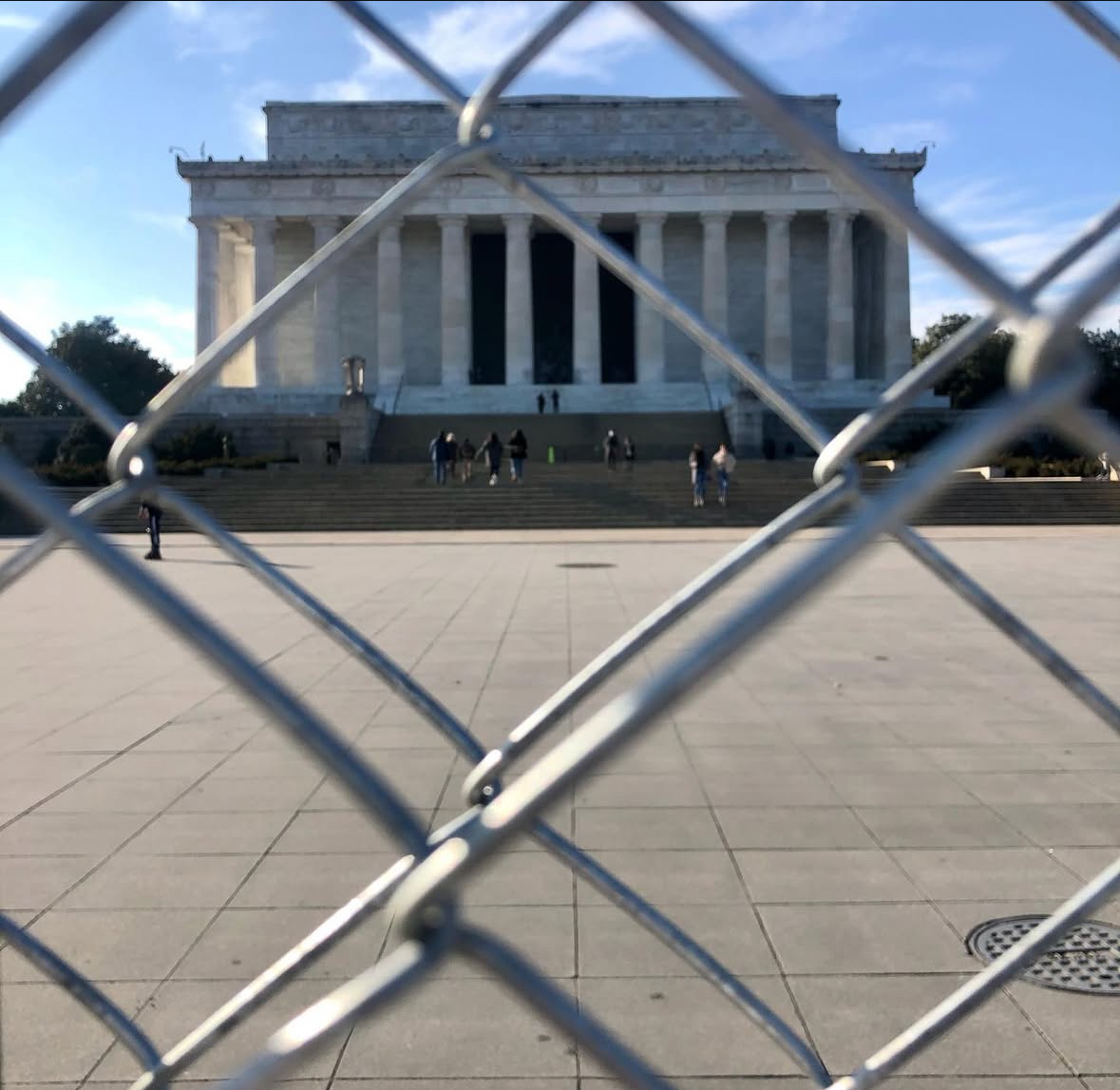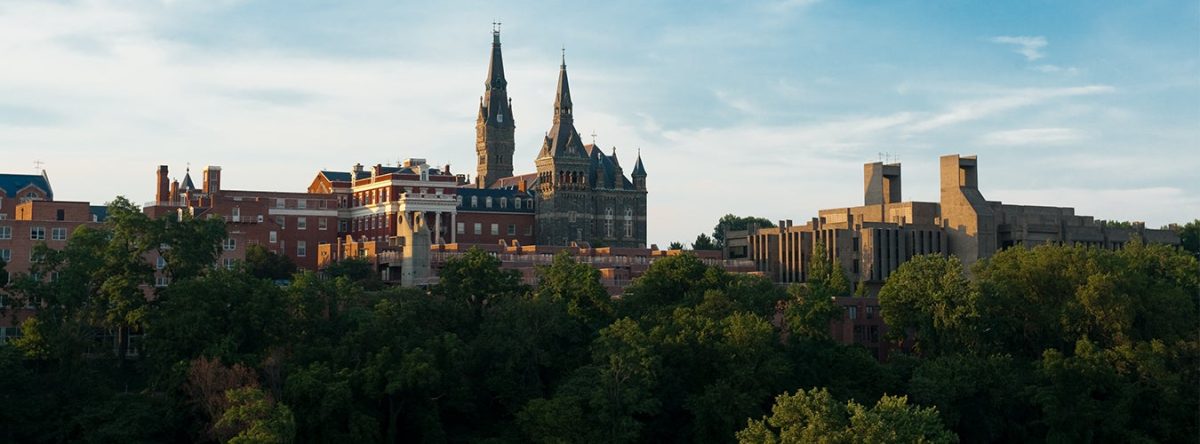The D.C. State Board of Education (SBOE) approved a bill to outlaw legacy and donor admissions preferences at certain private universities in Washington, D.C., on Feb. 19, advancing the bill to the D.C. Council.
Over 30 Georgetown students, many of whom were members of Hoyas Against Legacy Admissions, a student group advocating for the end of legacy admissions at Georgetown, testified at the hearing before the SBOE, an elected body that advises the Washington, D.C. government on educational issues. After the board approved it by a vote of seven yeses to one abstention, the Furthering Admissions Inclusion and Representation (FAIR) Act will next be introduced to the D.C. Council, bringing student efforts to end legacy admissions at Georgetown University closer to fruition.
Felix Rice (CAS ’26), co-founder and a lead organizer of Hoyas Against Legacy Admissions, said such legacy admissions policies produce a student body that is less racially and socioeconomically diverse than the nation.
“We have an admissions system that for the past several decades has consistently admitted a group of students that don’t reflect the diversity of our country and legacy is a big part of that,” Rice told The Hoya.
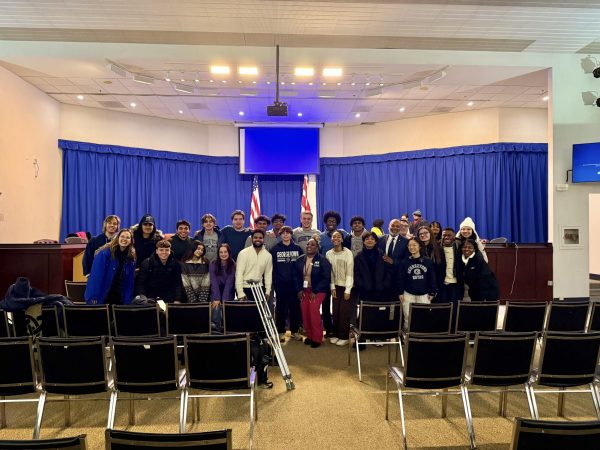
If the council passes the FAIR Act, the city would withhold funds and other economic development incentives, such as loans and contracts, from most District universities that practice legacy and donor admissions preferences — including Georgetown, American University, Catholic University and The George Washington University. The bill permits priority consideration for the descendants of the GU272+, the enslaved people whom Maryland Jesuits sold in 1838 to ensure Georgetown’s financial stability, while exempting universities that enroll 30% or more Pell Grant recipients.
Abdi Hernandez (MSB ’28), a first-generation student who testified in support of the bill, said ending legacy admissions would provide a pathway to Georgetown for first-generation, low-income (FGLI) students who are often overlooked.
“I really do believe that there should be more people of my background in this college, in this community,” Hernandez told The Hoya. “I go to any classroom now, and there’s nothing but people that don’t look like me. Essentially, I just want people that are from my circumstances, from my environment, which honestly is a marginalized, low-income environment.”
15% of students enrolled in Georgetown’s Class of 2028 are Pell Grant recipients, a record high for Georgetown, while the nationwide percentage of undergraduate students who receive Pell Grants is 34% as of 2024. 49% of students in the Class of 2028, the first class admitted following the end of affirmative action, self-identify as students of color, while 53% of the Class of 2027 identify as students of color.
A university spokesperson said the university will continue to evaluate its admissions policies to ensure a representative student body.
“This past year, the university began considering students’ Pell eligibility as part of its holistic and comprehensive admissions process, which resulted in attracting more low-income students to the University,” the spokesperson wrote to The Hoya. “We continue to consider other changes to our policies and have met with students who are advocating for action by the DC State Board of Education.”
Other students testifying urged the Board to consider legacy admissions’ impact on D.C. public school students and legacy students themselves.
Will Mead-McCaughan (CAS ’27), a student testifying in support of the bill who grew up in D.C., said ending legacy admissions would give high school students across the District applying to Georgetown a more equitable chance of admission.
“I think that legacy admissions actually hurts D.C. students more than your average student because D.C. public schools are not particularly strong, and most of the students who go to Georgetown from D.C. are private school students — I was a private school student,” Mead-McCaughan said. “I don’t think that should be the case.”
Lily Odenwelder (SOH ’26), a legacy student who testified in support of the bill, said that, in addition to creating an unrepresentative student body, priority admissions harm legacy students directly by instilling self-doubt.
“As much as I do believe in my abilities, there is a nagging thought in my mind about if I even deserve to be here as much as everyone else because of that potential boost that could have affected my admission,” Odenwelder said.
The bill will likely now pass to Phil Mendelson, the D.C. Council chairman, who can refer it to a council committee for a hearing or can leave it in abeyance, or temporary deferral.
Rice said Hoyas Against Legacy Admissions will shift their work toward encouraging councilmembers to cosponsor the bill after it is introduced, aiming ultimately for a vote on the legislation.
“If we get as many co-sponsors as possible — enough that if they all voted for it and it passed — then that makes it a lot easier to get a hearing and a vote,” Rice said.
Asher Maxwell (CAS ’26), another founder and organizer with Hoyas Against Legacy Admissions, said efforts from Georgetown and other local universities to lobby the council against the bill will be a major obstacle for its success in council.
“We know part of our problem is that the universities have been proactively lobbying Council members to ensure we don’t even get a hearing, because they know if the council hears the student testimony that the SBOE heard last night, they’ll lose,” Maxwell wrote to The Hoya.
According to D.C. public records, the Consortium of Universities of the Washington Metropolitan Area (CUWMA), an educational alliance between D.C. universities which includes Georgetown, hired lobbyists to push for the bill’s rejection.
Odenwelder said the university’s reluctance to end legacy admissions justifies action from the D.C. Council.
“It really feels like the university is digging in on its harmful values,” Odenwelder said. “We need this step of going to the D.C. government to try and get this stopped at Georgetown, because it seems like things are just worse than ever.”
Rice said the SBOE’s passage of the FAIR Act is a testament to student organizers’ efforts.
“The fact that a bill that a bunch of 18- and 19-year-olds wrote in a Lau 2 study room is going to become introduced legislation in D.C. — it doesn’t feel real to me,” Rice said.
Michael Scime contributed to reporting.
Correction: An earlier version of this story stated that Historically Black Colleges and Universities would be exempt from the bill. It was updated to reflect that the bill was changed such that universities that enroll 30% or more Pell Grant recipients are exempt.



